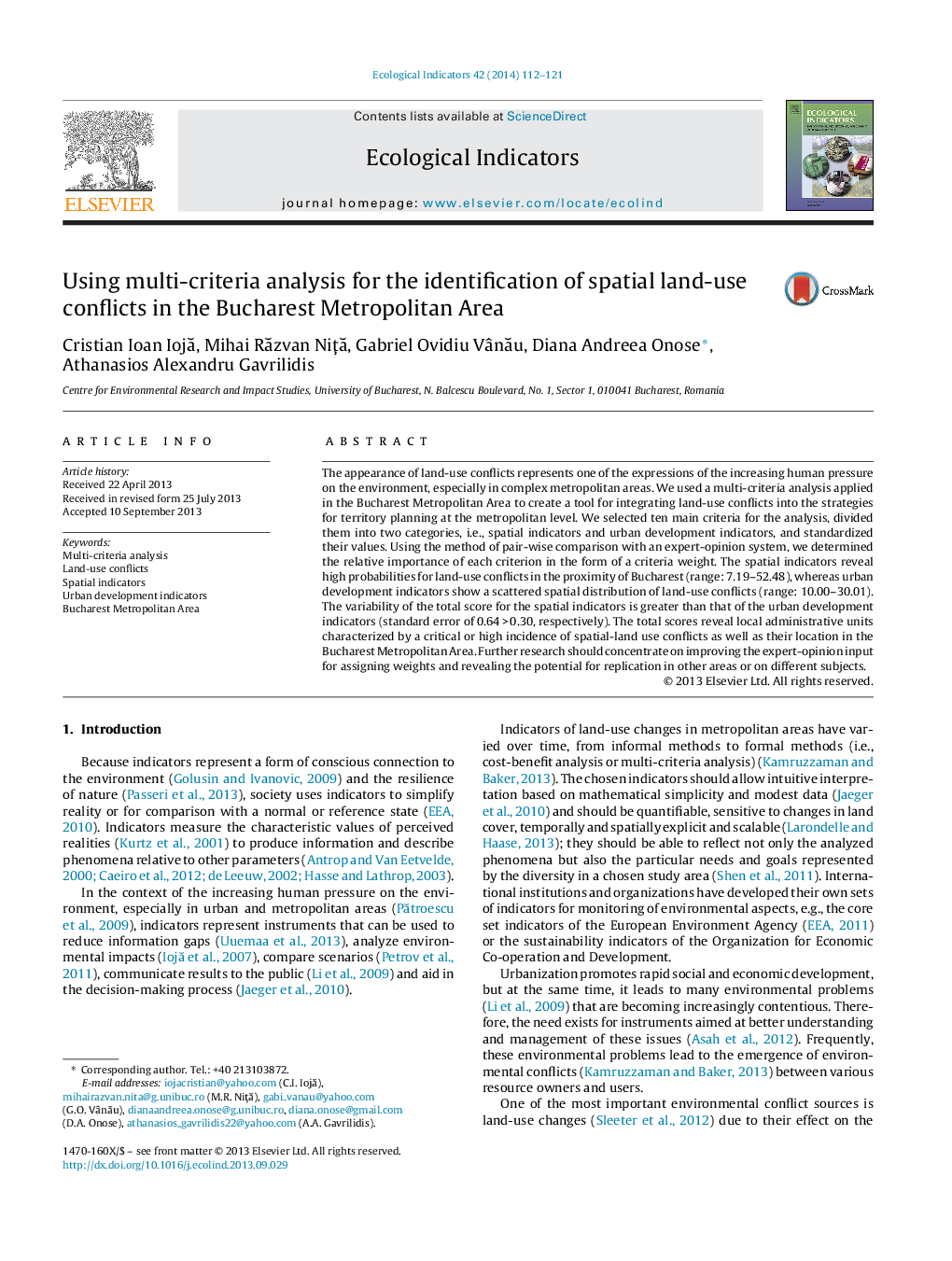| Article ID | Journal | Published Year | Pages | File Type |
|---|---|---|---|---|
| 4373147 | Ecological Indicators | 2014 | 10 Pages |
•A multi-criteria analysis was developed for assessing land-use conflicts.•Spatial indicators and urban development indicators were used in the analysis.•MCA is both simple and effective in response to rapid land-use changes.•The areas most exposed to the emergence of land-use conflicts are highlighted.•Results can be used in strategies of territorial planning.
The appearance of land-use conflicts represents one of the expressions of the increasing human pressure on the environment, especially in complex metropolitan areas. We used a multi-criteria analysis applied in the Bucharest Metropolitan Area to create a tool for integrating land-use conflicts into the strategies for territory planning at the metropolitan level. We selected ten main criteria for the analysis, divided them into two categories, i.e., spatial indicators and urban development indicators, and standardized their values. Using the method of pair-wise comparison with an expert-opinion system, we determined the relative importance of each criterion in the form of a criteria weight. The spatial indicators reveal high probabilities for land-use conflicts in the proximity of Bucharest (range: 7.19–52.48), whereas urban development indicators show a scattered spatial distribution of land-use conflicts (range: 10.00–30.01). The variability of the total score for the spatial indicators is greater than that of the urban development indicators (standard error of 0.64 > 0.30, respectively). The total scores reveal local administrative units characterized by a critical or high incidence of spatial-land use conflicts as well as their location in the Bucharest Metropolitan Area. Further research should concentrate on improving the expert-opinion input for assigning weights and revealing the potential for replication in other areas or on different subjects.
